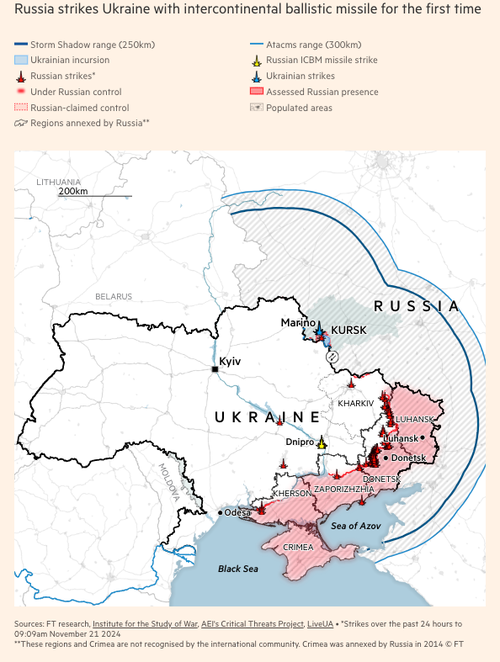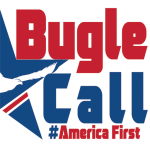
Russia Fires ICBM Into Ukraine For First Time, Kiev Confirms
Russia Fires ICBM Into Ukraine For First Time, Kiev Confirms Ukraine’s Air Force Command says that Russia has, for the first time in the multi-year war, launched an intercontinental ballistic missile (ICBM) targeting the central Ukrainian city of Dnipro. This unprecedented escalation follows Ukraine’s recent use of US-made MGM-140 Army Tactical Missile Systems (ATACMS) and British Storm Shadow missiles to strike military targets deep within Russia. The use of an ICBM is Russia demonstrating its greater capabilities in response to Ukraine’s long-range missile strikes. A senior Ukrainian military official told the Financial Times that Russia launched an ICBM called “RS-26 Rubezh” that has a range of 3,700 miles and can strike any European capital. Source: Financial Times Although RS-26 Rubezh can be used to deliver a thermonuclear warhead or an Avangard hypersonic glide vehicle, Thursday morning’s attack on the Dnipro region was non-nuclear, instead some sort of conventional warhead. “Using these kinds of missiles, whether RS-26 or a true ICBM, in a conventional role does not make a lot of sense because of their relatively low accuracy and high cost,” Pavel Podvig, a senior researcher at the United Nations Institute for Disarmament Research, wrote on X. “But this kind of a strike might have a value as a signal,” Podvig added. And yes, it does. Malcolm Davis, a senior analyst at the Australian Strategic Policy Institute, told CNN that the ICBM strike on Ukraine is a “message” to Kyiv’s Western backers. He emphasized that this week’s escalations, including the Biden-Harris administration greenlighting Ukraine’s use of ATACMS and Storm Shadow missiles to strike military targets in Russia, have likely prompted this escalation. Earlier this week, Russian President Vladimir Putin lowered the threshold for nuclear weapons use. He stated, “The use of Western non-nuclear rockets by the Armed Forces of Ukraine against Russia can prompt a nuclear response.” Davis continued, “Clearly, what




